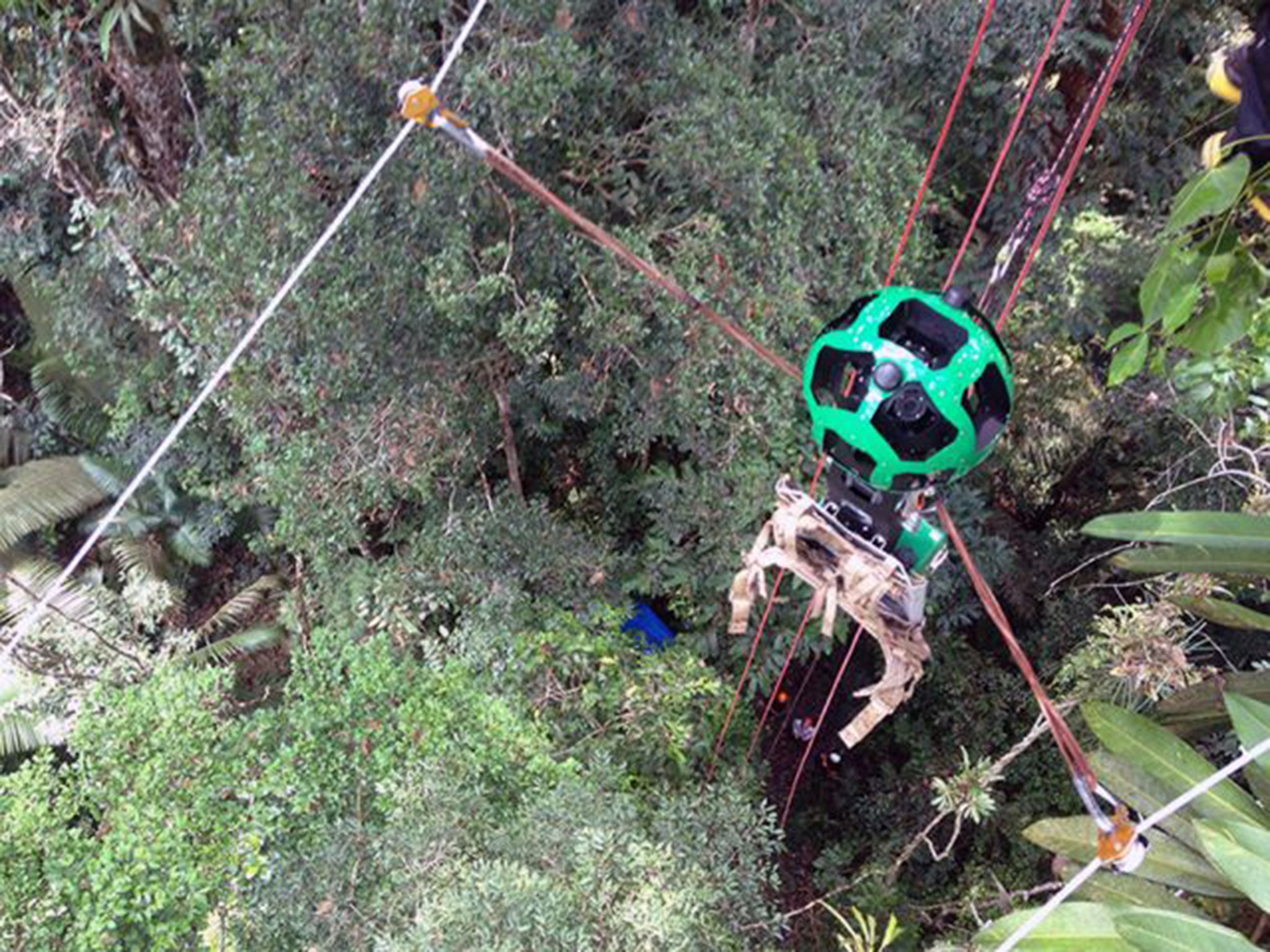Google Street View goes off-road to let you explore Amazon rainforest, scuba dive off Galapagos Islands and travel Canadian Arctic on a dog sled
Google’s virtual tour allows users to climb vines and survey the jungle from its treetop canopies

You can walk down a street in Tokyo, scuba dive in the Galapagos Islands and even travel on a dog sled in the Canadian Arctic all from the comfort of your sofa, thanks to Google’s Street View. Now you can see what it’s like to zip line through trees in the Amazon rainforest.
For its latest adventure, the Google camera was sent to explore a remote part of the world’s largest rainforest with environmental protection group Amazonas Sustainable Foundation (FAS). Google Street View has covered tracks in the Amazon since 2010, but images released today revealed unique 360 degree treetop views achieved by sending its camera for a ride down a zip line at speeds of 62mph.
The FAS environmentalists trekked through the rainforest to find a suitable place to string up a zip line, being careful to ensure that one of the world’s most famous cameras, which weighs 18kg and has 15 lenses, wouldn’t knock into any trees or branches. “One of the things that I love about working at Google is that if a partner comes to us with a crazy idea, we will probably try it,” said Karin Tuxen-Bettman, who oversees Google’s street view partnerships.
Google’s virtual tour allows users to climb vines and survey the jungle from its treetop canopies. Browsers can also take a virtual trip down two Amazonian rivers – Rio Aripuana and Rio Mariepaua – as well as view images from local villages.
Hashima: Google StreetView captures eerie images of Japan's abandoned Battleship island
Show all 9Google said that the FAS hopes that “sharing the imagery of their local communities, rain forests and rivers with the world will raise awareness and support for their efforts to conserve these areas”.
Subscribe to Independent Premium to bookmark this article
Want to bookmark your favourite articles and stories to read or reference later? Start your Independent Premium subscription today.

Join our commenting forum
Join thought-provoking conversations, follow other Independent readers and see their replies